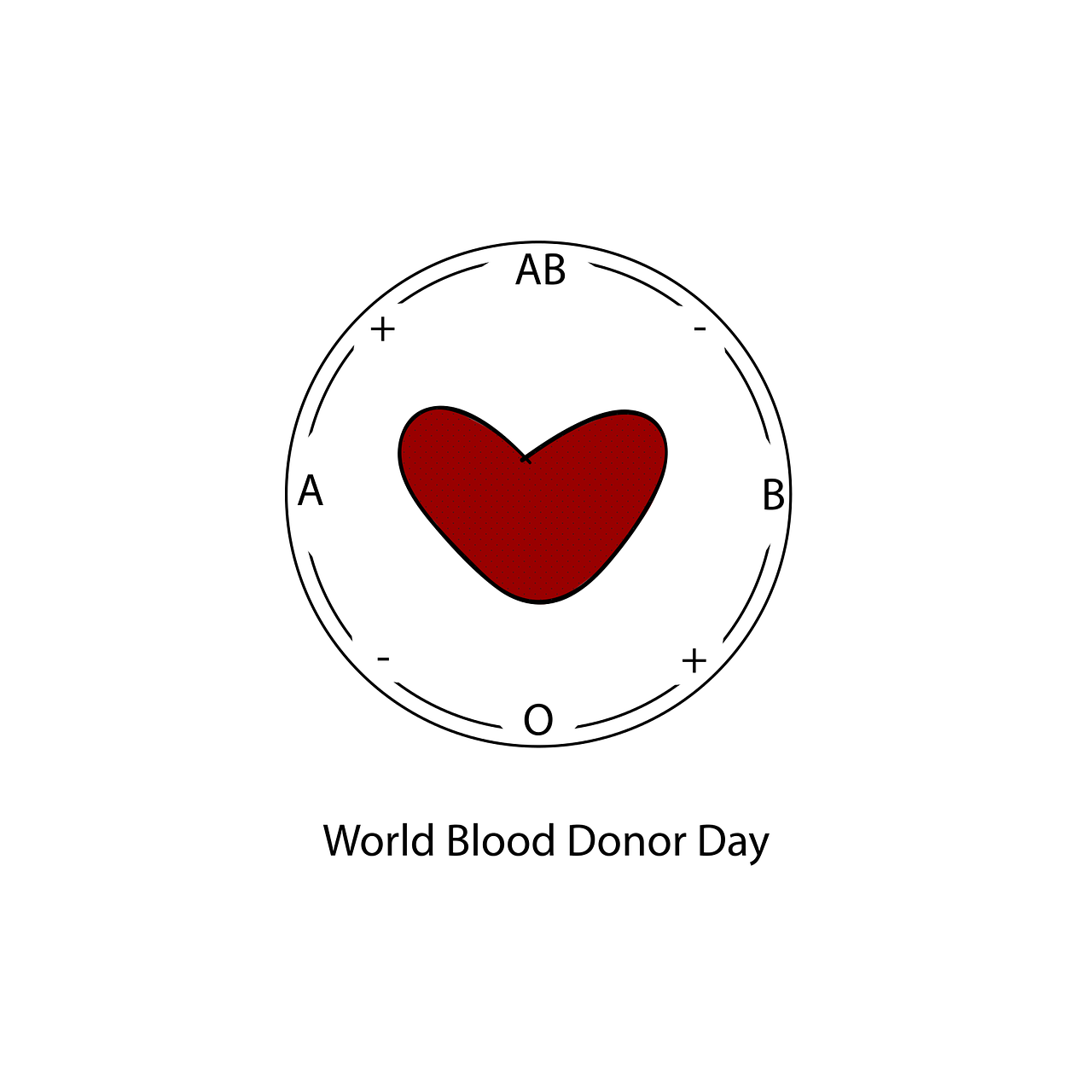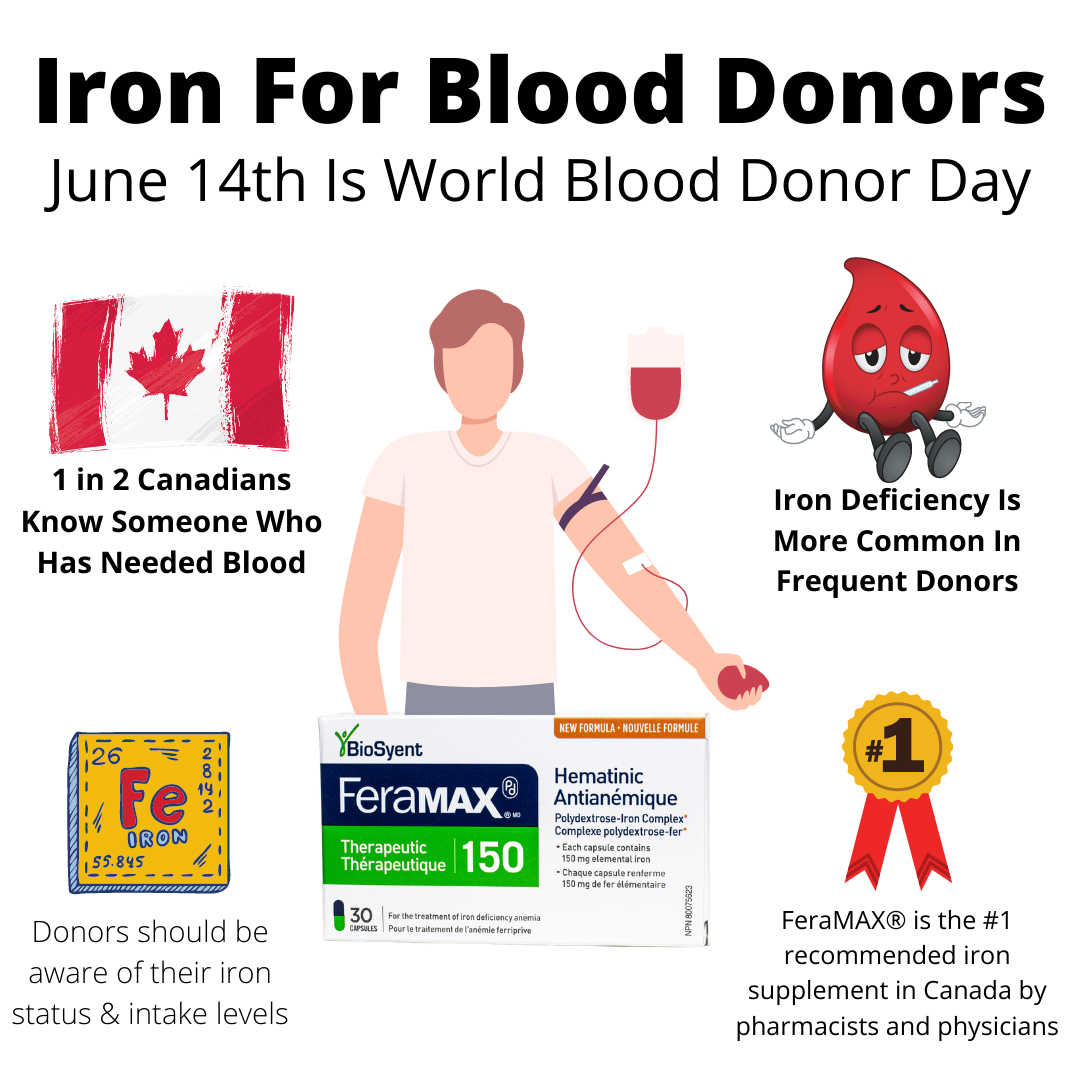June 14th is acknowledged globally by 194 WHO Member states as World Blood Donor Day.
A day dedicated to raising awareness around the importance of blood donation and the role it plays in saving lives across the globe and here at home.
According to Health Canada data, over half of Canadians say that either themselves personally or a family member has needed blood at some point in their lives.
There is always a need for blood donations, especially when you consider that it takes multiple donors to help a single person in need.
It can, for example, take up to 50 blood donors to save someone seriously hurt in a motor vehicle accident.
Those battling cancer, undergoing surgery and/or organ transplant are examples of other types of individuals who depend on the blood of multiple donors.
It’s pretty clear that blood donation is a massive component of the healthcare system, and so I’m really thrilled to be once again teaming up with FeraMAX® to put the spotlight on blood donation and more specifically on blood donors and their unique nutritional needs.
Much of which inevitably revolves around iron status and iron intake.
If you haven’t already, I highly recommend reviewing the previous content we collaborated on together which looks at the three unique stages of iron deficiency and the portions of the population that are most at risk.
Blood donors happen to be among them.
The Iron Status Of Blood Donors
Blood donation has massively positive consequences for the general public, but also brings with it a set of unique nutritional considerations for the individual donors.
In order to reduce the risk for donors, there are tightly regulated eligibility guidelines that determine the minimum blood iron levels for donation and set the parameters around spacing between donations ( 12 weeks for females, 8 weeks for men) based on mitigating the risk of iron deficiency and anemia.
Here are some key considerations for donors as defined in a Canadian Blood Services Report:
- Iron deficiency is much more common in blood donors – especially females and those who donate more frequently. This is important to acknowledge as 70% of blood donations come from repeat donors.
- Blood donors should speak with their physicians: An iron-adequate diet is fundamental for all blood donors, but conversations with your physician should take place to consider the role of iron supplementation to restore the losses that occur with frequent donation.
Dietary & Supplemental Iron
FeraMAX® is the #1 recommended iron supplement by pharmacists and physicians in Canada.
Depending on your iron status and donation frequency, you and your healthcare team may establish the need for some form of iron supplementation.
It’s also extremely important that you understand the importance of dietary iron.
Adequate iron intake is a fundamental nutrition consideration for all blood donors, especially females, frequent donators and others at higher iron deficiency risk categories such as vegans and vegetarians.
FeraMAX® has an exceptional resources directory where you can learn more about the product as well as a very useful handout on the sources of dietary iron.
As a quick reminder, it is important to remember that dietary iron comes in two different forms.
Heme-Iron – Tends to be more readily absorbed and comes from all type of meat, poultry and seafood.
Non-heme Iron – Tends to be less readily absorbed and can be found from a wide-array of plant sources such as legumes, tofu, nuts, seeds and whole grains. Consuming non-heme iron rich foods in the presence of vitamin C (ie; fruits/veggies) will help enhance its absorption.
You can learn more about the different iron sources, including the quantities of iron they contain, via this useful resource courtesy of FeraMAX®.
Final Thoughts
Blood donation is an important public health activity and in order to sustain it we must all play a role in taking care of those who are regular donors.
Depending on a donor’s iron status, it may inevitably require a combination of a strong dietary pattern and potentially supplementation to ensure this comes to fruition.
Keep this in mind and do not hesitate to consult your healthcare team for further direction.
Finally, if you are interested in donating blood, you can head over to the Canadian Blood Services website to determine your eligibility.
Until next time,
Andy De Santis RD MPH




